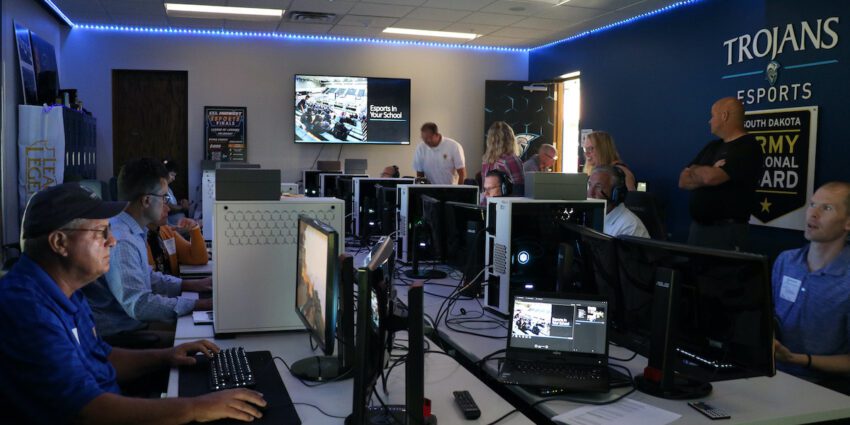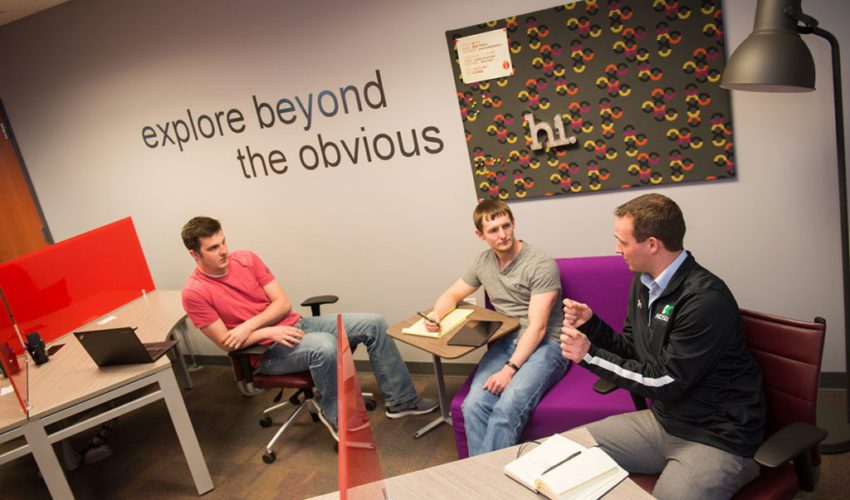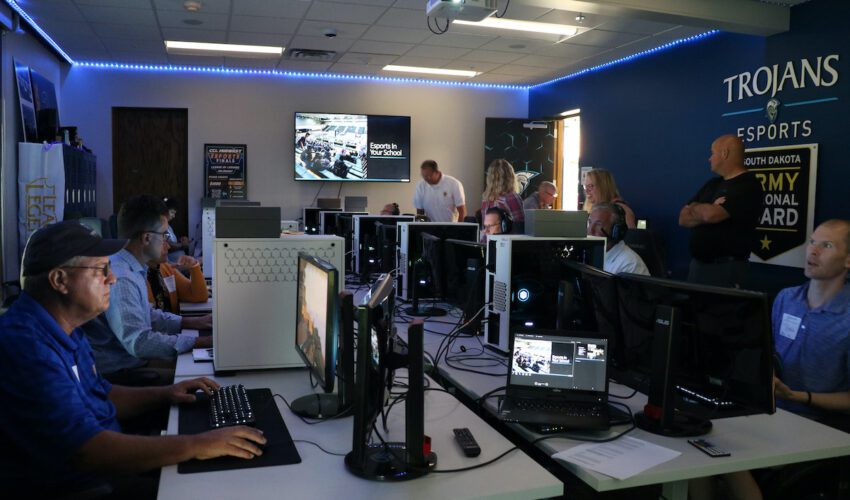Esports seminar teaches educators about starting high school programs
June 29, 2022
This paid piece is sponsored by Dakota State University.
A seminar this week organized by Dakota State University and the South Dakota High School Activities Association helped attendees learn more about starting high school esports programs.
Because esports is a relatively new concept, there are many schools that are interested in adding it but don’t know where to start, said Dr. Dan Swartos, executive director of the SDHSAA. “Currently, we have a steering committee formed to look at esports as a sanctioned SDHSAA activity.”
Dr. Mark Hawkes, dean of graduate studies and professor of educational technology at Dakota State, reached out to Swartos, who is a DSU alumnus, about esports’ place in high school activities.
They developed a one-day seminar that took place Monday at DSU. It taught educators about esports and provided continuing education units at the graduate level, Hawkes said.
The seminar covered the areas of esports facts and a brief history, how to launch a program, social media and marketing, esports rules and regulations, and organizing a South Dakota high school league.
“Our goal was to provide people with a baseline of knowledge of the activity and framework for starting a club,” Swartos said.
The development of esports as an activity for high schools will help provide opportunities for students whose interests may not fit in traditional athletics or fine arts activities, Hawkes explained. “It’s another way to engage them, help them build a community of their peers and create relationships with skilled adults.”
Hawkes worked with DSU head esports coach Andy Roland to develop the seminar. “Andy has the expertise and background to conduct the seminar; he coaches our wildly successful esports team,” he said.
Roland established an esports organization while a student at Texas Christian University and has led the DSU athletic esports program since its start in 2019. He also created the Collegiate Champions League for colleges in the Midwest to compete in esports.
While Roland shared best practices for new esports programs, he also introduced the educators to what esports is.
“A big part of my job has always been teaching people what esports is,” Roland said. “I’m really excited to get high schools more involved in esports.”
His past experience in esports also includes playing on a starting varsity roster and serving as a coach, manger, director and conference coordinator with a competitive league.
“Working directly with students, both as a student when I built the TCU program and as a facilitator now, has given me a good perspective on what the needs are from an athlete’s side of things and from the administrative side of things,” he said.
Roland started the seminar with a brief history of esports, including some of the first organizations, how it evolved to professional competition and some of the top esports in the world right now.
Educators learned what the games are and how they’re played and had the opportunity to play games such as Valorant and Smash Ultimate.
Additionally, Roland focused on what the rules and regulations of esports are and how to launch programs.
“I think the most important part is the students and keeping them engaged and involved,” he explained.
The SDHSAA committee will present a report to the association’s board of directors, with the potential of adding sanctioned esports beginning with the 2023-24 school year, Swartos added.










